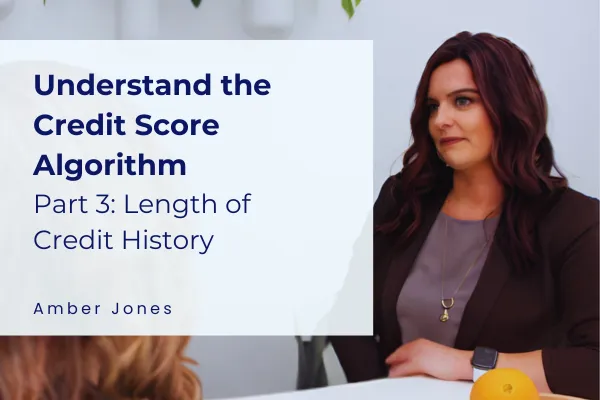
Understand the Credit Score Algorithm – Part 3: Length of Credit History
“The credit algorithm rewards you for loyalty—keep accounts open and active.”
– Sam Parker, CEO of MyCreditGuy

🧠 Understand the Credit Score Algorithm – Part 3: Length of Credit History
Featuring Sam Parker, CEO of My Credit Guy Credit Restoration
When it comes to building better credit, time is on your side—if you use it wisely. The third component of your credit score is length of credit history, and while it makes up a smaller percentage than payment history or credit utilization, it still plays a powerful role in your overall score.
In this installment of our 5-part series, Sam Parker, CEO of My Credit Guy Credit Restoration, explains how this section works, why longevity matters, and how to make the most of the accounts you already have.
🎥 Watch Part 3 Now ⬇️
🧾 Why Length of Credit History Matters
Length of credit history accounts for 15% of your total credit score. It’s all about showing consistency and longevity in how you manage your accounts. The longer your accounts have been open and in good standing, the more it helps your score.
In the video, Sam explains:
This section rewards loyalty—the longer your accounts are open, the better
You should avoid closing old credit cards, even if you don’t use them often
Closing an account means you lose all its history, not just moving forward, but the last 2, 5, or 10 years of data
Instead of closing, keep cards active with small, intentional purchases—like a tank of gas
Combine this habit with low utilization to boost multiple areas of your score
🧠 Sam’s key reminder: “You want to keep an account open for as long as you possibly can.”
✅ Take Action: Keep Your Accounts Working for You
If you’re thinking about closing a card you no longer use, think again. Here's how to use this credit score factor to your advantage:
Keep older accounts open, especially those in good standing
Use your unused cards for a small monthly charge—gas, a subscription, etc.—and pay them off in full
Avoid “churning” credit by frequently opening and closing new accounts
Make a list of your oldest accounts and make sure they’re in good shape
Pair this habit with what you learned in Part 2 about credit utilization
📌 Coming Up Next: Part 4 – New Credit
In the next post, we’ll look at how opening (or applying for) new credit affects your score—and what to watch for if you’re preparing for a major financial move like buying a home.
💬 Final Thought
When it comes to credit, age matters—but only if you're smart about how you manage it. By keeping your accounts open and active, you're not just preserving history—you're building trust with lenders and boosting your long-term score potential.
Credit success isn’t just about fixing the past—it’s about maintaining the right habits going forward. And this habit is simple: keep it open, use it wisely.

